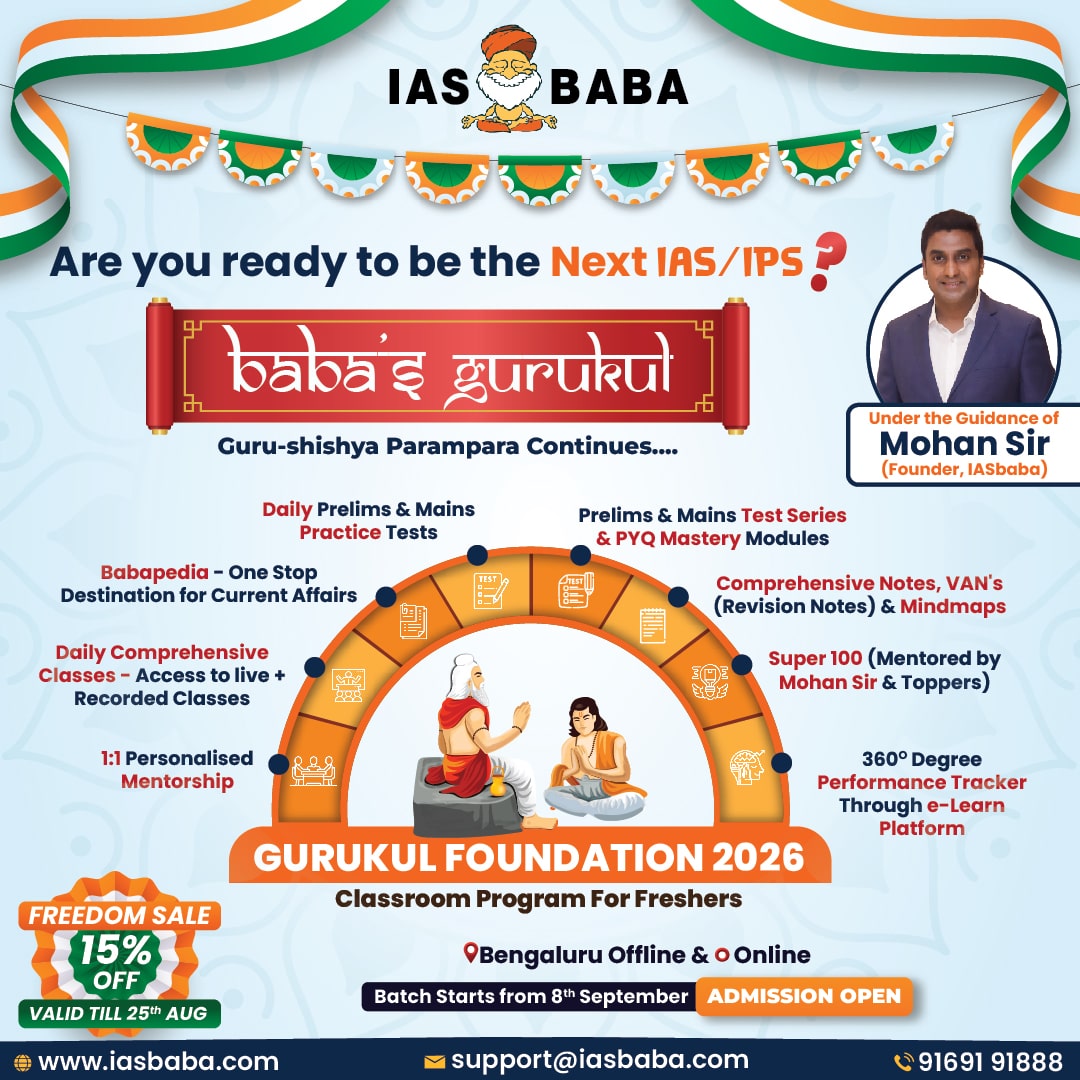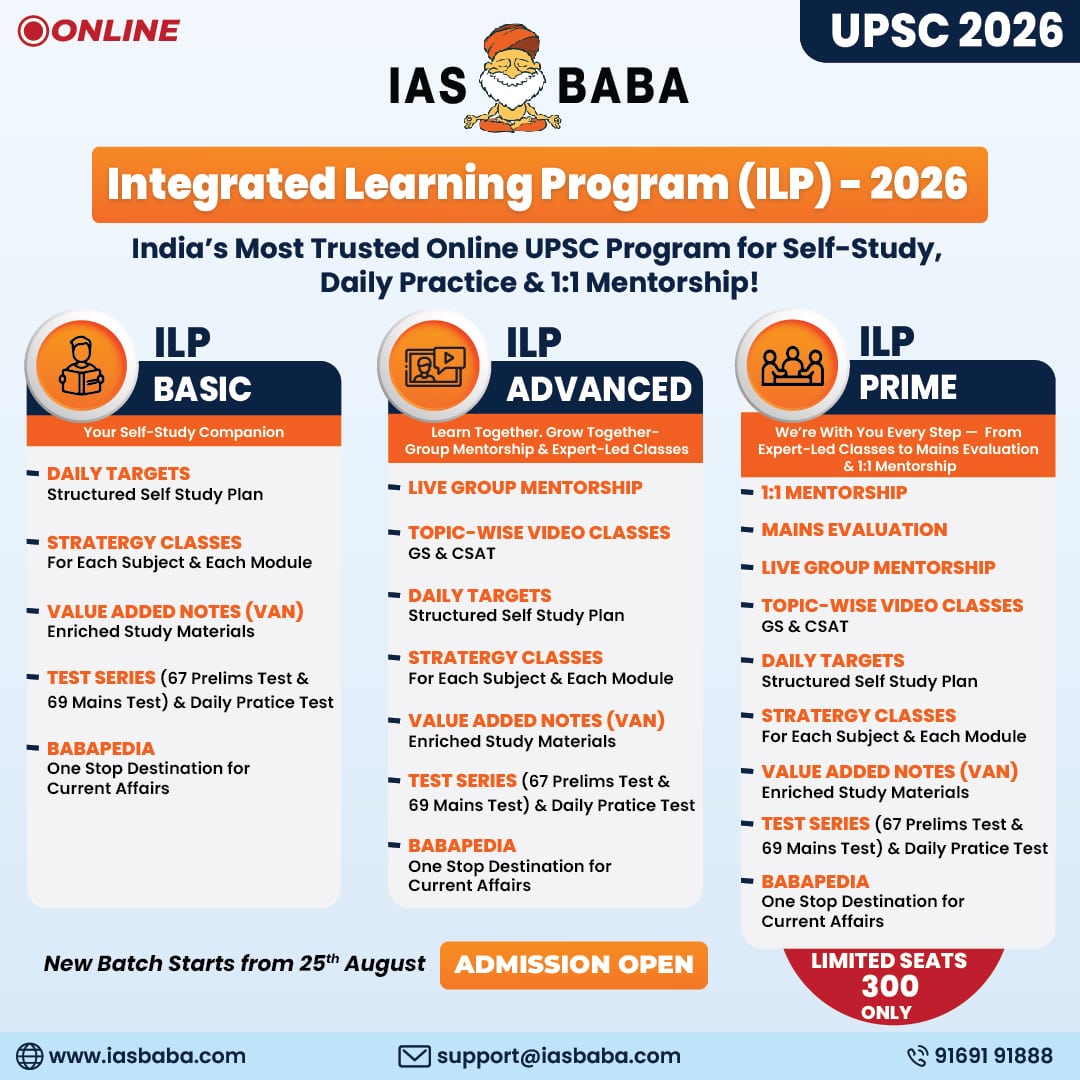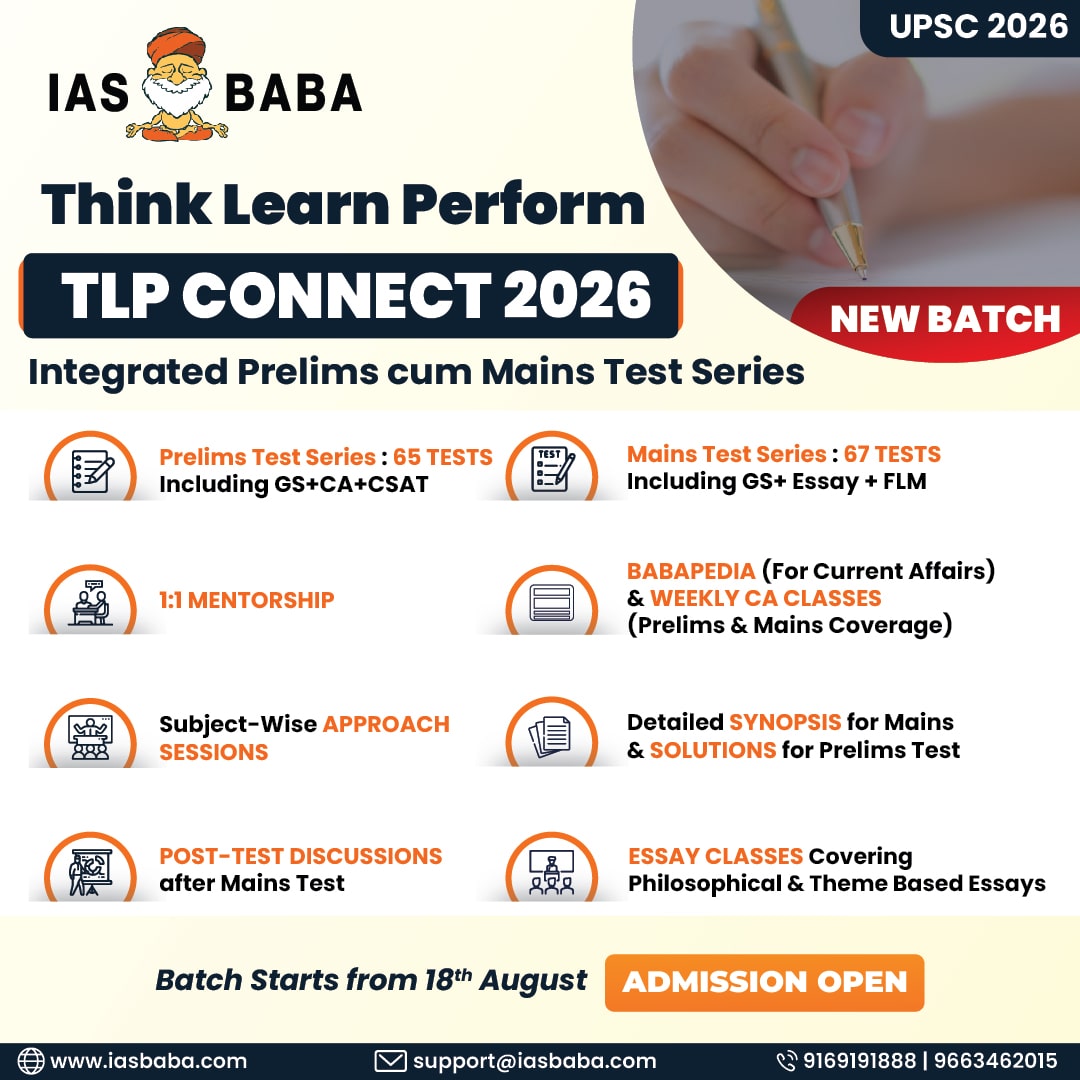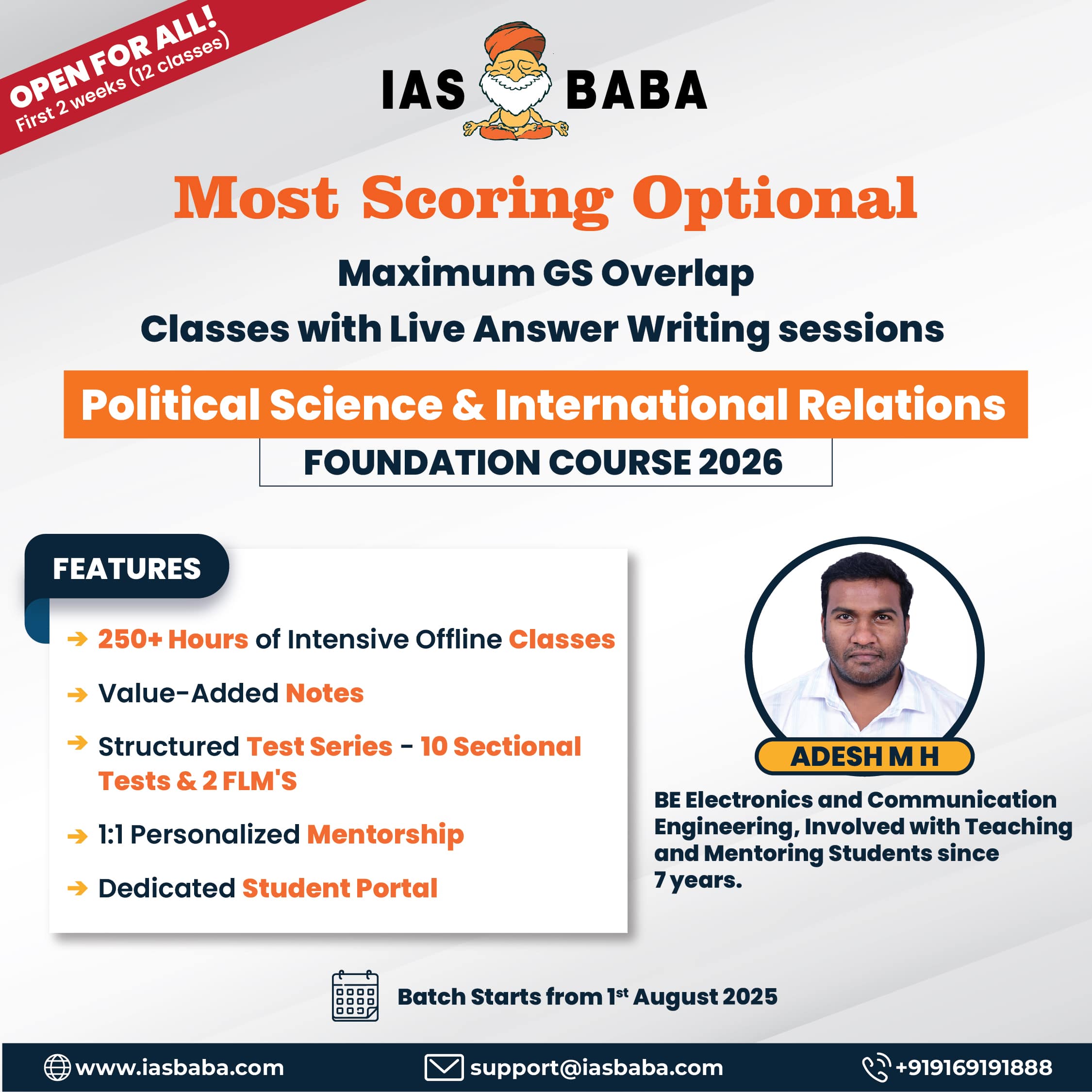Think and Learn, TLP Mains 2015, UPSC, UPSC Mains- Think and Learn-2015
TLP: GS Mains Synopsis [Day 61]
Q.1) Discuss if India’s soaring aspirations towards economic development and the mandate of eliminating poverty have been able to complement each other well in a highly globalized scenario? Critically examine.
The Top Answer for this Question is written by – Shiuli
Ans) Globalization in India was accelerated after the New Economic Policy was adopted in 1991. The reforms had far-reaching impacts on the situation of poverty in the country. They are enumerated below:
1. Growth – India has steadily grown at around 6-7% since 1991. This is resulted in increasing per capita income, improvement in civic amenities etc
2. Employment – Due to increasing consumer-orientation ofthe market newer avenues of employment have opened up in IT, banking sector etc
3. Agriculture – Agricultural sector had benefited by growth in industrial and services sector through mechanization, availability of best farm-practice (e.g. arid area farming from Israel), easier banking facilities etc
However, the increasing globalization has also had some negative impacts on poverty –
1. Collapse of rural economies – Rural economies have become increasingly vulnerable to global shocks due increased exposure under the WTO regime
2. Unequal benefits –The benefits of globalization have largely accrued to the services sector which employs the least number of people
3. Changing farming patterns – With an increased focus on cash crops, Indian farmers are often left at the mercy of market forces. Also, land degradation has also occurred on a large scale
Hence, we see that twin objectives of economic development and poverty alleviation have seen mixed results. The solution lies in dealing with the problems of inequality and inclusiveness.
Q.2) The death of 13 women, who underwent the sterilisation procedure of tubectomy in Chhattisgarh, pushes India to re-think about the different family planning options available. Should the camp-based procedure continue to operate or there are any methods to better still, the way it’s being carried out?
The Top Answer for this Question is written by – Indushree
Ans)
Image 1 – http://a.disquscdn.com/uploads/mediaembed/images/2733/5185/original.jpg
Image 2 – http://a.disquscdn.com/uploads/mediaembed/images/2733/5187/original.jpg
Q.3) The conduct of societies and communities is shaped by social norms that evolve over time. What is repugnant today might have been acceptable earlier to some sections of society. Discuss.
The Top Answer for this Question is written by – Annapurna Garg
Ans)
Image 1 – http://a.disquscdn.com/uploads/mediaembed/images/2734/1903/original.jpg
Image 2 – http://a.disquscdn.com/uploads/mediaembed/images/2734/1902/original.jpg
Q.4) “Secularism is all about erecting a wall of separation between State and Religion and thereby devaluing religion”. Critically analyze this statement in the Indian context.
The Top Answer for this Question is written by – Shiuli
Ans) The doctrine of separating the State from religious affairs is an essential feature of the Western brand of secularism. It is characterized by separate spheres of influence, no aid to religious institutions and no interference in the religious activities.
However, in the Indian context, the State is not totally divorced from religious affairs. Articles 25-28 of the FRs symbolize the pluralism in Indian society as all religions are given equal space to develop. In the Western model, this may not be possible. For instance, if a religion restricts coloured people from attending festivals, the State would not intervene in the matter.
On the other hand, in India, the State maintains a principled distance i.e. it can intervene or abstain from interference, depending upon which option would better promote liberty, equality and social justice. Additionally, the State tries to address socially evil practices such as untouchability (under Art 17) which is mandated by religion, but grossly violates one’s human rights.
Indian brand of secularism is probably better suited here where a number of communities have co-existed since ancient times. It is an expression of ‘tolerance’ which is a hallmark of Indian society. Although, this form of secularism has been criticized for being interventionist, pro-minority and even anti-religious, it has stood the test of time. Hence, its efficacy cannot be doubted.
Q.5) “Each generation defines its own values that they feel are right and in tune with progressive times”. Do you think Indian society holds true to this statement? Critically Discuss.
The Top Answer for this Question is written by – Rahul Agarwal
Ans) Values are the set of beliefs which are cherished as desired goals and determinants of right and wrong by a large section of society. Every society has a ingrained value system driving the social structures and practices. But, seldom do these values are static in nature , and with increase in knowledge and abilities, they tend to change in progressive societies. Some of the values which have changed in progressive Indian society are :
A. Varna System: Traditional Indian society considered varna system as ideal for smooth functioning, But with progressive time,particularly in urban India, these values have been replaced with equality and inclusiveness
B. Gender Discrimination: In older times, women were constantly subjected to discrimination in their family and social rights. They were forced to commit sati, remain confined in home, no property rights etc. The modern progressive society is constantly aiming to provide gender parity in every walk of life to women.
C. Family structure: Earlier society put a lot of emphasis on joint family structure and shared living. The present generation is more aspirational and individualistic in nature and hence nuclear families are considered better.
But sometimes, the values of younger generation are in opposition to ingrained ethos of society:
A. Materialism: Present generation is deeply involved in materialistic pleasures, keeping it as the highest aim of life.
B. Westernisation: With the increasing western influence, the core values of collectivism, mutual cooperation are under threat.
Thus, no doubt, evolution of values are essential for growth of a civilization, but there are certain core values like love, kindness, justice etc which are needed to be preserved.
High Order Thinking
Q.1) What reasons can be attributed for the development deficit in the Muslim community of India? Do you think affirmative action or positive discrimination on part of the State is the only way out? Critically examine.
The Top Answer for this Question is written by – Vardan Maheshwari
Ans) The socio-economic conditions of Muslims has been a reason to worry for the governments,and the findings of the SECC 2011 and Sacchar Committee Report confirm the fact that the Muslims are lacking in almost all human development indices.
Reasons for developmental deficit of Muslims in India:
a)EDUCATIONAL-25% of Muslim children(6-14 years)have never attended school(Sachhar Committee Data),lack of modernization of Madarsa education.
b)ORTHODOXY-Fundamentalists are still dominant in Muslim society due which they intentionally seclude themselves from the mainstream.
c)DEMOGRAPHIC-High growth rate causes large families and malnourished children and also brings poverty.
d)POLITICAL-Politicians see Muslims as a VOTE-BANK,not as deprived community for which initiatives should be taken, also absence of Uniform Civil Code further degrades the condition of Muslims in the society.
-Though the concept of positive discrimination has been enshrined in Constitution(Article 15-16) and various guidelines and schemes have been initiated for their welfare like PM’s 15 point agenda, Nayi roshni, seekho aur kamao,nothing much fruitful has been achieved.
-Thus the positive discrimination needs to be combined with following measures:
a)Mission mode approach to the existing schemes for muslim welfare.
b)Uniform Civil Code for uplifting the status of women.
c)Venture Capital funds and green business schemes should be started for muslims also.
d)Initiatives for skill development of muslims.
d)Madarsa education should be brought in line with the National Education Policy 1986
Q.2) In a democratic state like India, can freedom to vote be separated from the freedom to contest in elections? In light of the recent introduction of a set of educational qualifications to be attained, do you think that an educational qualification shall prevail over fundamental rights of the citizens of India? Analyse.
The Top Answer for this Question is written by – The Rock
Ans) Article 325 of constitution provides right to vote and contest elections without any discrimination. Contesting rights to every voter is necessary to promote equality of opportunity. However , Art 62 (5) of RoPA 1952 allow contesting elections even for convicted persons after losing voting rights , leading to corruption and criminalisation of politics . This was struck down in Jan Chawkidar case by Supreme court stating that a convicted person disqualified to vote was also disqualified from contesting elections. Thus, the two freedom of vote and contest cannot be separated.
However, recently Rajasthan and Haryana government introduced minimum educational qualifications for contesting panchayat elections, which has been criticized for infringement of right to equality of status and oppurtunity
Arguments for
1. Education promotes awareness of laws , procedures , etc thus improving objectivity and efficiency
2. Motivate towards education attainment for representatives and society at large
Arguments against
1. Educational criteria excludes a larger section of society , especially women and dalits from the electoral process
2. Constitution denies state’s discrimination on the basis of education
3. Grassroot level work requires familiarity and responsiveness than education
4. Low level of education is a failure of state machinery . Further alienating such people perpetuates a class divide against illiterates
5. Against principles of equality, where state and central legislatures don’t have any such criteria
Thus, an education qualification should not be a mandatory requirement for contesting elections. However , steps for promoting education and training should be carried to promote effectiveness of political process.
Q.3) The moment we stop judging the issue of uniform civil code through the lens of religion and majoritarianism and rather strive to arrive at a negotiated understanding with respect to protection of human rights in general and women rights in particular, the uniform civil code won’t remain a distant reality. Critically comment.
The Top Answer for this Question is written by – Rahul Agarwal
Ans) A civil code means set of laws and rules applicable to the issues of marriage, divorce, guardianship, inheritance, adoption etc, which affects the personal aspects of citizens of a country. Traditionally, the civil codes are governed by the religious laws, but in a modern liberal and progressive society, many of these laws seems to misplaced. In particular,they are biased against the women and their rights.
Founding fathers of our country, consciously thought about the importance of uniform civil code, which stems from :
A. Right to Equality: As enshrined in article 14,it restricts any gender based discrimination.
B. Right to Life and liberty: Article 21 talks about meaningful existence with proper rights.
C. DPSP: Article 44 of constitution, put onus on government to strive towards Uniform civil code.
But, successive governments showed little interest in implementing uniform civil code. After the crisis of shahbano case in 1986, it has been allowed to take communal colour. Though supreme court from time to time , as in case of daniala latifi,exhorted government to come with uniform civil code.
No progressive religion can argue against improving the status of women of their community. Thus, government should create an environment:
A. Where Uniform civil code is not viewed as Hindu or majority civil code.
B. Proper representation of all the stakeholders in process of drafting.
C. Effective communication to bridge trust deficit between communities.
Once, the issue is rescued from the communal domain, Uniform civil code may become reality in a near future.














